Dive into the joys of home gardening with my friendly guide, “Gardening 101 for Beginners.” Discover nature’s beauty right at your doorstep! As a beginner, starting a vegetable garden can seem intimidating, but with the right guidance, it can be a fulfilling and rewarding experience. This comprehensive guide covers the basics of vegetable gardening and planning, providing you with the necessary knowledge to start your own garden.
Key Takeaways
- Start small and only grow vegetables that you and your family will eat.
- Choose a suitable location with ample sunlight exposure and well-drained soil.
- Select easy-to-grow vegetables like lettuce, green beans, and radishes.
- Plant each vegetable at the appropriate time, considering cool-season and warm-season crops.
- Obtain high-quality seeds and follow essential care practices like watering, mulching, and pest control.
- Enjoy the satisfaction of harvesting and savoring your very own homegrown vegetables.
In this guide, you will learn about the importance of selecting the right location for your garden, considering factors like sunlight exposure and drainage. You will also discover the significance of planting each vegetable at the appropriate time, considering cool-season and warm-season crops, and learn how to care for your plants throughout the growing season. Furthermore, you will find recommendations for easy vegetables to grow as a beginner.
Starting small and following basic gardening practices will help you on your gardening journey. Learning and exploring the world of gardening is a rewarding experience and a great way to connect with nature. So let’s get started!
Choosing the Right Location
If you’re a beginner looking to start a vegetable garden, there are a few key steps you need to know. One of the most important aspects of starting a garden is selecting the right location. Here are some tips to help you choose the perfect spot for your garden:
| Tip | Explanation |
|---|---|
| Pick a sunny spot | Most vegetables need 6 to 8 hours of direct sunlight per day, so it’s important to select a location that receives plenty of sun. |
| Ensure good drainage | Wet soil can lead to rotted roots, so make sure the location drains well and doesn’t stay wet. |
| Choose a stable location | Avoid locations that are prone to strong winds, as this can damage plants or hinder pollination. |
| Consider soil nutrient content | Thin, nutrient-poor soil can result in unhealthy plants. Adding organic matter to the soil can help improve its quality. |
When it comes to the size of your garden, starting small is usually recommended. A 10′ x 10′ garden is a manageable size for beginners, and a raised bed measuring 4′ x 4′ or 4′ x 8′ is a good option as well. It’s essential to choose vegetables that you and your family enjoy eating and consider the availability of certain vegetables in your area. Finally, remember to plant at the right time and think about the different types of gardens you can create, such as raised beds, pots, or traditional garden plots.
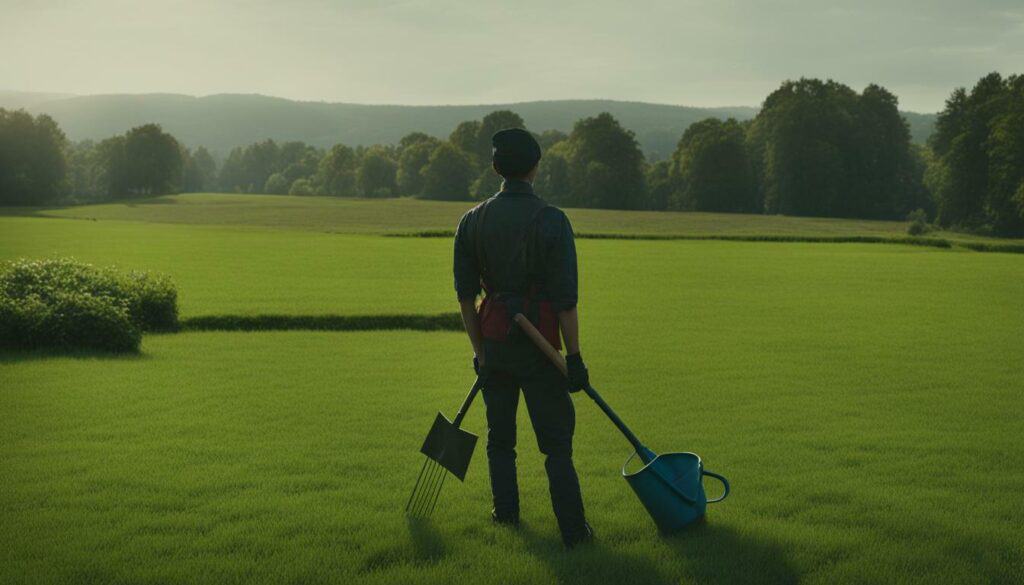
Selecting the Right Vegetables
Start with a small garden plot or raised bed, and only grow vegetables that you and your family enjoy eating. When selecting vegetables, it is best to choose easy and productive options that are perfect for beginners. Some easy vegetables for beginners to grow include lettuce, green beans, radishes, tomatoes (from transplants), zucchini, peppers (from transplants), beets, carrots, chard, spinach, kale, and peas. These plants are beginner-friendly and will likely yield a good harvest.
Personal preference and the amount of vegetables your family will eat should also be considered when selecting which vegetables to grow. It is essential to pick the vegetables that you and your family enjoy eating, as this will make gardening more enjoyable and rewarding. Additionally, consider the availability of certain vegetables in your area. Choose vegetables that are readily available in your local grocery store, or those that you have trouble finding or buying.
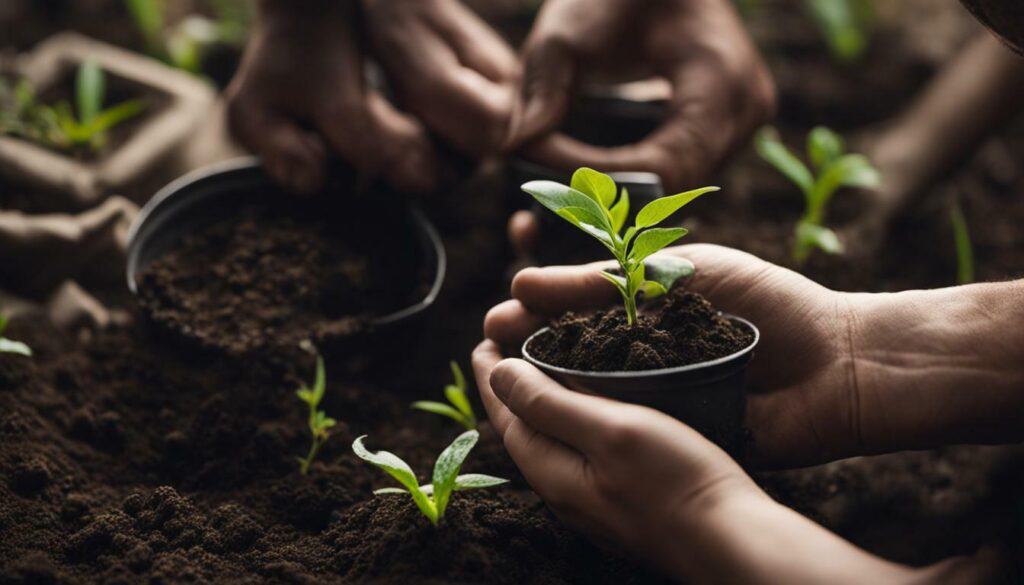
Tip: If you are new to gardening, it’s always best to start with a small plot and with vegetables that are easy to grow. This will give you a chance to learn the basics before venturing into more challenging crops.
Recommended Vegetables for Beginners
Some easy vegetables for beginners include lettuce, green beans, radishes, tomatoes (from transplants), zucchini, peppers (from transplants), beets, carrots, chard, spinach, kale, and peas. To ensure that your vegetable garden thrives, there are a few key factors to keep in mind when selecting and planting your crops.
| Considerations | Recommendations |
|---|---|
| Sunlight exposure | Choose a sunny spot for your garden, as most vegetables require 6 to 8 hours of direct sunlight per day. Some leafy vegetables can tolerate some shade. |
| Soil drainage | Ensure that the soil drains well and doesn’t stay wet. If you have poorly drained soil, consider using a raised bed or raised row for improved drainage. |
| Wind | Avoid planting in windy locations that could damage young plants or hinder pollination. Also, avoid areas with too much foot traffic or that are prone to flooding. |
| Soil quality | Use nutrient-rich soil to promote healthy plant growth. If your soil is thin or nutrient-poor, add organic matter to improve its quality. |
| Plant only what you will eat | Start small with your garden to avoid being overwhelmed. Only grow vegetables that you know you and your family will eat. |
| Garden size | Consider the size of your garden. A 10′ x 10′ garden in the ground or a 4′ x 4′ or 4′ x 8′ raised bed is a manageable size for beginners. Larger gardens can be considered if you have enough space and are willing to put in the necessary effort. |
| Productivity | Choose easy-to-grow vegetables that are also productive. Some recommended vegetables for beginners include lettuce, green beans, radishes, tomatoes (by transplants), zucchini, peppers (by transplants), beets, carrots, chard, spinach, kale, and peas. |
| Family preferences and availability | Consider your family’s preferences and the availability of vegetables at your grocery store when choosing what to grow. |
| Proper care | Be prepared to take care of your plants throughout the growing season, especially during the hot summer months. If you’ll be away, arrange for someone to look after your plants or choose cool-season crops that can withstand the cooler months. |
| High-quality seeds | Use high-quality seeds to ensure successful germination and higher yields at harvest time. |
| Planting time and location | Consider the sunlight, water, and food requirements of each vegetable when deciding where and when to plant them. Choose a suitable location for your garden based on the amount of sunlight it receives. Raised beds, containers, and garden plots are different options to consider. |
| No Dig method | Consider implementing the “No Dig” method, which involves layering organic materials on top of cardboard to preserve and nurture the natural soil structure. |
| Start small | Start with a well-tended, small garden that you can easily manage, rather than a large garden that might become overwhelming. |
By following these recommendations and guidelines, beginners can enjoy a successful vegetable garden and the satisfaction of growing their own fresh and nutritious produce.
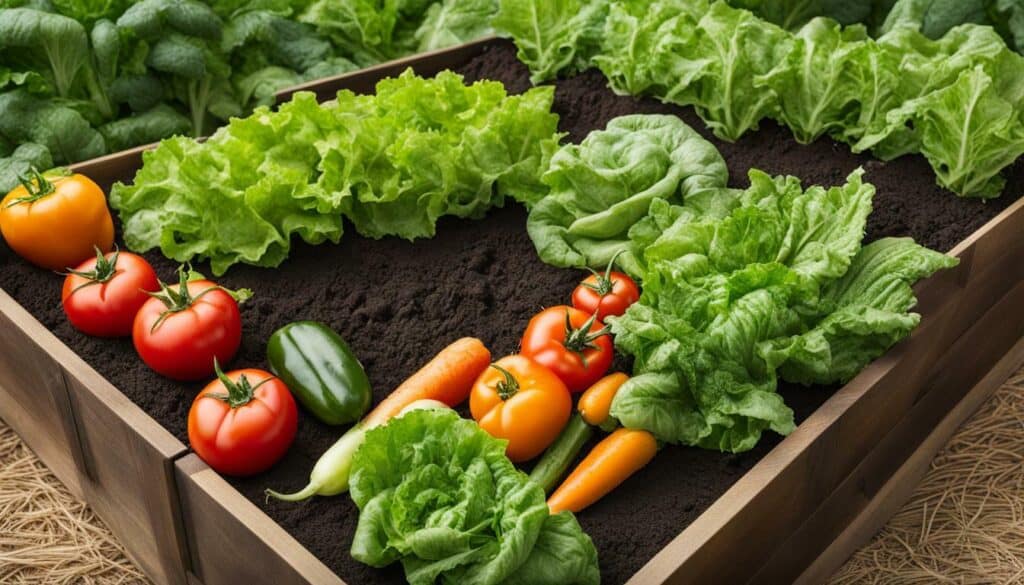
Considering Vegetable Availability and Consumption
Consider the availability of vegetables at your local grocery store and be realistic about how many vegetables your family will eat. Before starting your vegetable garden, it is important to choose the right location that will provide your plants with the necessary sunlight and soil conditions to thrive. Most vegetables require 6 to 8 hours of direct sunlight, good drainage, and nutrient-rich soil.
If you are a beginner, it is recommended to start with a small garden and only grow vegetables that you and your family will eat. Some easy vegetables for beginners to grow include lettuce, green beans, radishes, tomatoes (from transplants), zucchini, peppers (from transplants), beets, carrots, chard, spinach, kale, and peas.
It is also important to plan where and when to plant each vegetable, as different vegetables have different planting times. Additionally, ensure that you have the ability to care for the plants throughout the growing season. Lastly, using high-quality seeds is essential for successful gardening.
Planting at the Appropriate Time
Plant each vegetable at the appropriate time, as some are cool-season crops and others are warm-season crops. For cool-season crops, such as lettuce, spinach, and kale, it is best to plant them in early spring or late summer. Warm-season crops like tomatoes, peppers, and zucchini should be planted after the danger of frost has passed and the soil has warmed up in the late spring or early summer.
It is recommended to choose a sunny spot with well-drained soil and avoid areas with strong winds or foot traffic. Nutrient-rich soil is essential for healthy plants, so adding organic matter is important. Start small and choose vegetables that you and your family enjoy eating. Consider the availability of vegetables in your area and the maintenance required throughout the growing season.
Different types of vegetable gardens, such as raised beds or pots, can suit different spaces. Soil quality is important, and the “No Dig” method is becoming popular. Taking these steps and paying attention to the appropriate planting times will help gardeners achieve success in their vegetable gardens.
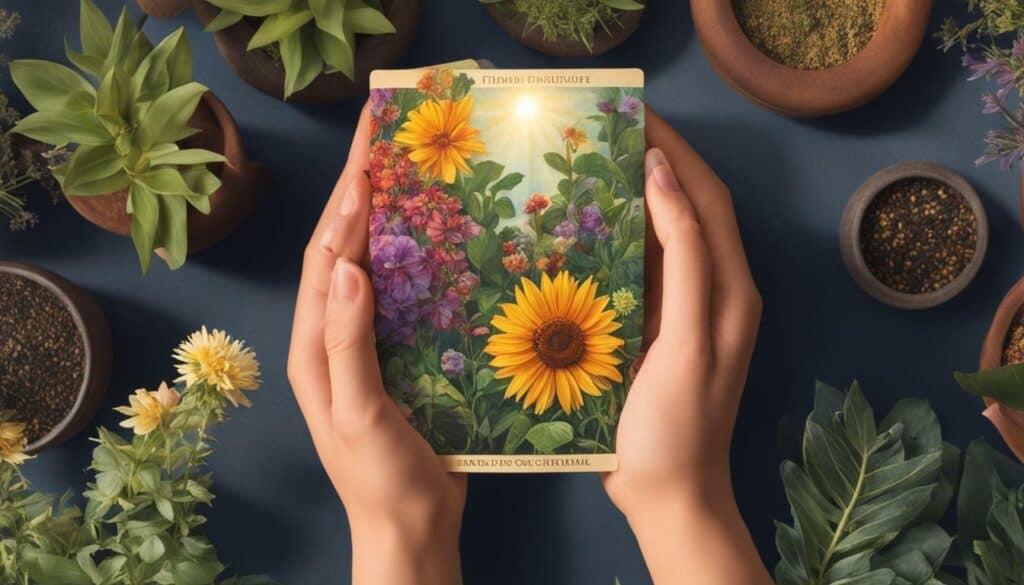
“Planting a garden is an investment in tomorrow” – Unknown
Ensuring High-Quality Seeds
Finally, make sure to have high-quality seeds and take care of your plants throughout the growing season. The key to a successful vegetable garden is to start with good quality seeds. Look for seeds that are labeled untreated, certified organic, or non-genetically modified. You can find high-quality seeds online, at garden centers, and through seed catalogs. Make sure to read the seed packets carefully to determine the plant’s growth habits, planting instructions, and recommended care.
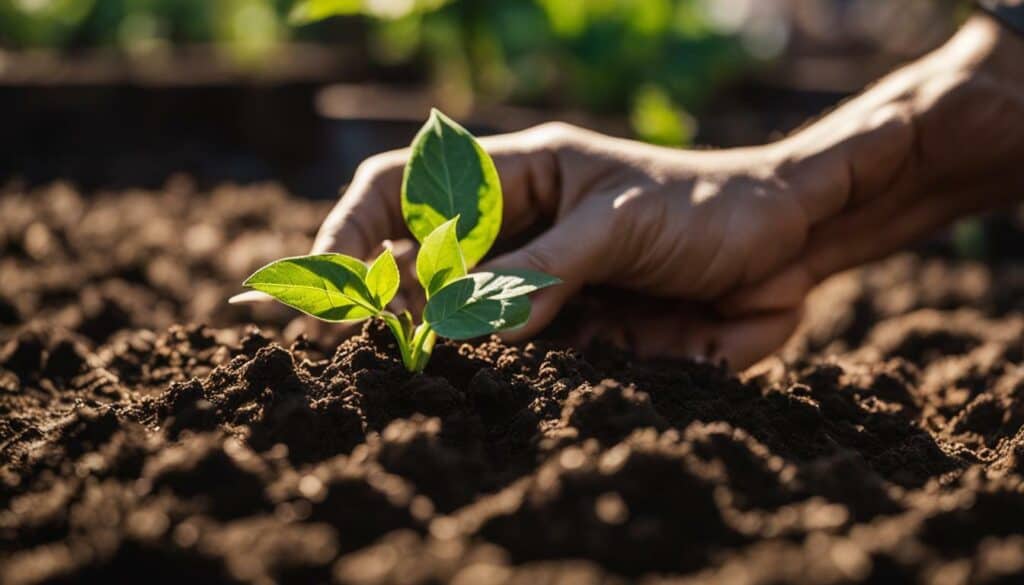
When it comes to selecting seeds, it’s best to stick with varieties that are suited to your climate and growing conditions. Some vegetables, like tomatoes and peppers, need warm temperatures to thrive, while others, like carrots and spinach, prefer cooler temperatures. By choosing seeds that are suited to your climate, you’ll increase the chances of success in your vegetable garden.
It’s also a good idea to choose seedlings or transplants instead of starting from seed if you’re a beginner. This way, you can skip the germination process and get a head start on growing your vegetables. If you do decide to start from seed, make sure to follow the instructions carefully to ensure successful germination.
Finally, be sure to store your seeds properly. Keep them in a cool, dry place, out of direct sunlight. Label them clearly and organize them so that you can easily find what you need when it’s time to plant. By following these tips, you can ensure that you have high-quality seeds and set yourself up for a successful vegetable garden.
Caring for Your Plants
Finally, make sure to have high-quality seeds and take care of your plants throughout the growing season. Caring for your plants involves selecting the right location, preparing the soil, choosing the right vegetables, and knowing when and how to plant them. For a successful vegetable garden, it’s important to pick a sunny spot with well-draining soil.
| Beginner Gardening Techniques | Description |
|---|---|
| Watering | Water your plants regularly, especially during hot and dry periods. |
| Mulching | Add a layer of mulch to your plants to help retain moisture and suppress weed growth. |
| Pest Control | Identify and treat any pests or diseases that may affect your plants, using organic methods whenever possible. |
Start small and only grow vegetables that you and your family enjoy eating. Consider the availability of vegetables at your grocery store and be prepared to take care of your plants throughout the growing season. Planting times vary for different vegetables, so plan accordingly. Additionally, it’s crucial to provide your plants with high-quality seeds and proper nutrition.
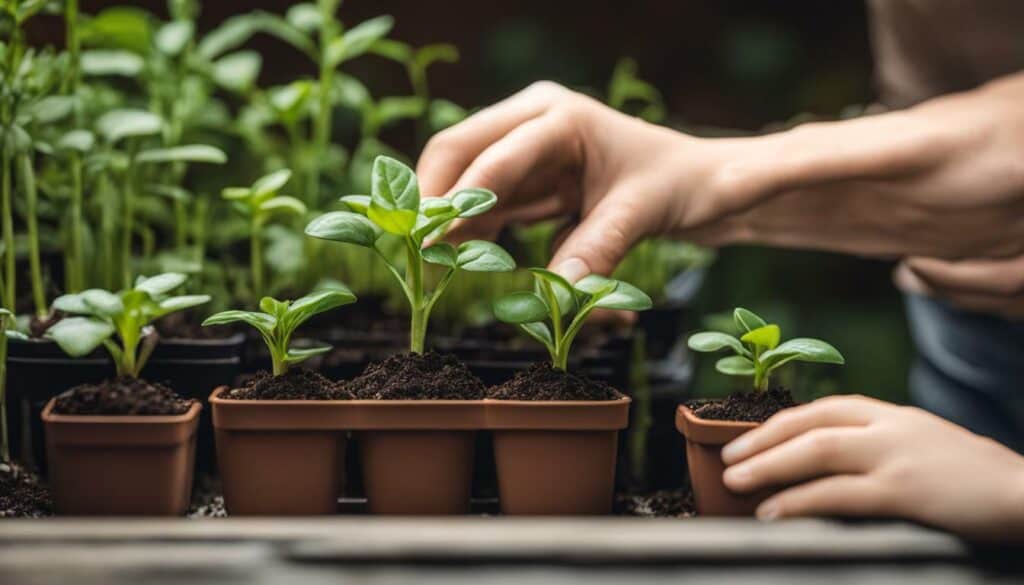
By following these beginner gardening techniques, you can ensure a successful and enjoyable gardening experience. Remember to monitor your plants regularly and adjust your care practices as needed. With patience and dedication, you’ll be able to enjoy a bountiful harvest in no time!
Enjoying the Fruits of Your Labor
Finally, make sure to have high-quality seeds and take care of your plants throughout the growing season. When your plants are ready for harvest, pick them at the peak of ripeness for the best flavor. Nothing beats the taste of a homegrown tomato or freshly picked zucchini. It’s also a great experience for children to see how their food is grown, and they’ll be more likely to try new vegetables when they’ve been involved in the process.
Take the time to enjoy your garden, whether it’s by picking vegetables or just sitting and admiring the fruits of your labor. Share your bounty with friends and family, or learn the art of canning and preserve your harvest for the winter months.
Starting a vegetable garden from scratch can seem daunting, but the rewards are well worth it. Not only will you have access to the best-tasting vegetables and fruits, but you’ll also have the satisfaction of knowing you grew them yourself. Follow the steps in this gardening for beginners guide and enjoy the journey of starting your own garden.
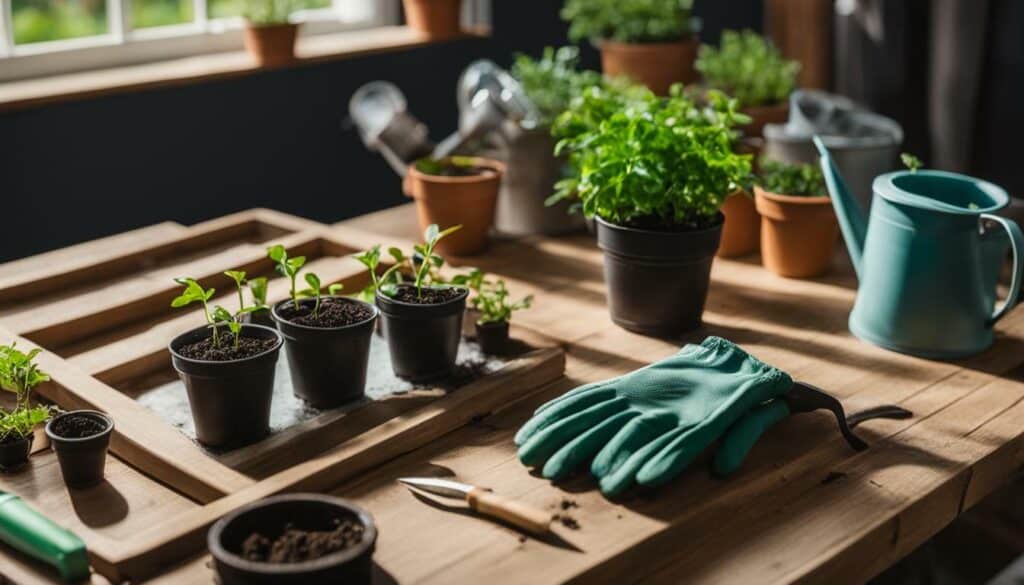
Remember, gardening is a learning experience and no one expects you to have a perfect garden on your first try. Don’t be discouraged by setbacks or mistakes; instead, use them as opportunities to learn and grow. Join online communities or take a class at your local gardening center to expand your knowledge and learn from experienced gardeners.
Expanding Your Gardening Knowledge
If you’re looking to take your gardening skills to the next level, then you’re in the right place. As a beginner, you may have started with a small herb or vegetable garden, but as you gain more experience and knowledge, you can expand your gardening abilities and create a thriving garden full of fresh produce.
One of the best things about gardening is that there is always something new to learn. From companion planting to designing your garden, there are various techniques that you can use to enhance your gardening skills. By expanding your knowledge, you can grow your own vegetables and enjoy the taste of fresh, homegrown produce.
Finally, make sure to have high-quality seeds and take care of your plants throughout the growing season. Good soil is essential for successful gardening, so make sure to enrich it with organic matter. Additionally, consider the planting location and timing according to the specific requirements of each vegetable.
You can find a wealth of information online, through forums, blogs, and videos. Take advantage of these resources to learn more about gardening techniques and tips. You can even join local gardening clubs or attend gardening classes to meet other enthusiasts and gain hands-on experience.
Remember, gardening is a journey, and it takes time to develop your skills and expertise. Start with a small garden and expand as you gain confidence. With the right knowledge and dedication, you can create a beautiful and thriving garden that produces delicious and nutritious vegetables for you and your family to enjoy.
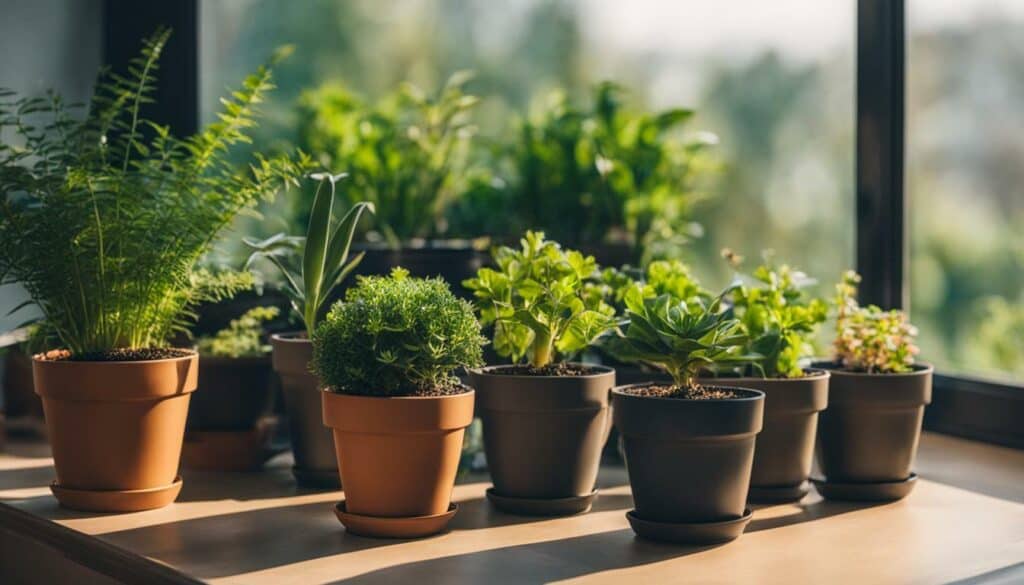
Embracing the Journey
Finally, make sure to have high-quality seeds and take care of your plants throughout the growing season. As a beginner, it is important to understand that mistakes will happen, and not everything will go perfectly. Embracing the journey of learning and experiencing gardening can be a rewarding and enjoyable experience.
Don’t be discouraged if your first few attempts don’t produce the results you were hoping for. Gardening is a learning experience, and each season is an opportunity to improve and grow. Enjoy the process of watching your garden develop and become a source of nourishment and beauty for your family.
Remember to start small, choose vegetables that you enjoy eating, and consider the availability and amount of vegetables your family will consume. Understanding the basics of gardening and soil composition is crucial for success. With patience, dedication, and a willingness to learn, anyone can embrace the journey of growing their own food and creating a beautiful garden.
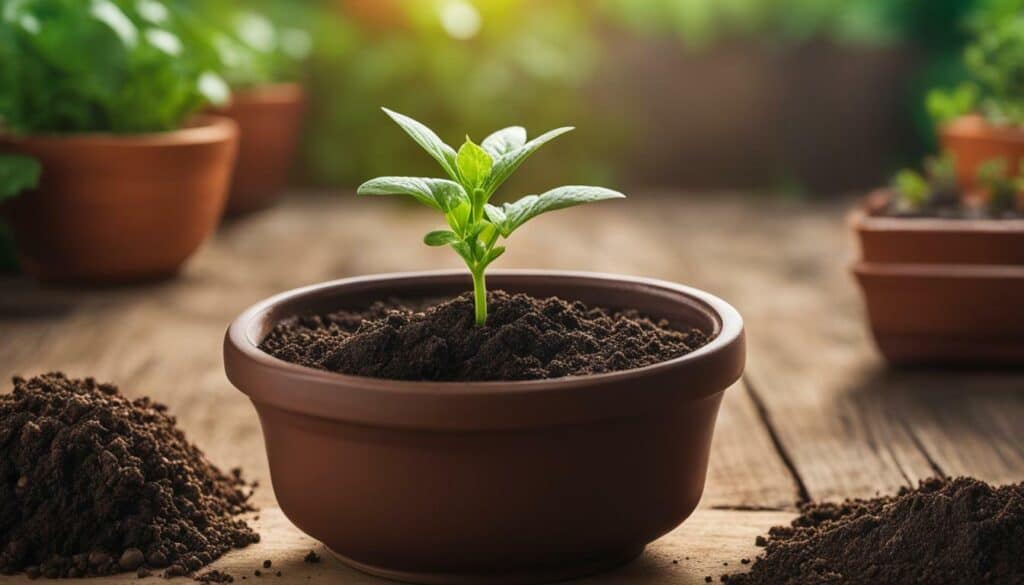
By following these steps, you can begin your gardening journey with confidence and enjoyment. It may not always be easy, but the satisfaction of harvest time and the joy of watching your garden flourish will make it all worth it. Happy gardening!
Conclusion
In conclusion, my friendly guide “Gardening 101 for Beginners” invites you to unlock nature’s beauty and discover the joy and satisfaction of home gardening right at your doorstep. Starting a vegetable garden can be a rewarding and enjoyable experience, especially for beginners. It is important to choose a suitable location for your garden, considering factors like sunlight exposure and drainage. As a beginner, it’s best to start small and select vegetables that are easy to grow and that you and your family enjoy eating.
When selecting your vegetables, consider their availability at your local grocery store and how much your family consumes. Plant each vegetable at the appropriate time, depending on if they’re cool-season or warm-season crops. Obtaining high-quality seeds and taking proper care of your plants throughout their growing season is crucial for success. Understanding the basic needs of plants, such as sunlight, water, and nutrients, is also essential.
By following these steps and getting started with a small garden, you can grow your own vegetables and enjoy the fresh flavors and textures of homegrown produce. Don’t be afraid to expand your gardening knowledge through resources such as books, online communities, and local gardening classes. Embrace the journey and enjoy the fruits of your labor. With the right mindset and tools, you can have a successful and enjoyable gardening experience. Happy gardening!
FAQ
Q: Where should I start my vegetable garden?
A: Choose a location that receives plenty of sunlight and has good drainage.
Q: What vegetables are easy for beginners to grow?
A: Some easy vegetables for beginners include lettuce, green beans, radishes, tomatoes (from transplants), zucchini, peppers (from transplants), beets, carrots, chard, spinach, kale, and peas.
Q: How do I know when to plant each vegetable?
A: Plant each vegetable at the appropriate time, considering cool-season and warm-season crops.
Q: Where can I find high-quality seeds?
A: Look for high-quality seeds at local nurseries or reputable online seed suppliers.
Q: How should I take care of my plants?
A: Take care of your plants by watering them regularly, mulching to retain moisture, and practicing pest control.
Q: How can I learn more about gardening?
A: Expand your gardening knowledge through resources such as books, online communities, and local gardening classes.
What Are Some Essential Tools and Tips for Beginner Gardeners?
For beginner gardeners, having the right garden tools and tips can make all the difference in nurturing thriving plants. Essential tools include a trowel, pruning shears, and a watering can. Learning about soil conditions, sun exposure, and proper watering techniques are valuable tips that can aid in creating a bountiful garden. Utilizing garden tools and tips effectively will lead to a rewarding gardening experience.
Source Links
- https://www.almanac.com/vegetable-gardening-for-beginners
- https://thepotagerproject.com/how-to-start-a-vegetable-garden/
- https://www.gardenersworld.com/how-to/gardening-for-beginners/
- https://www.amazon.com/Gardening-101-Beginners-Guide-Cultivating/dp/B0CC7QS54Y
- https://www.gardensthatmatter.com/choose-garden-location/
- https://www.littlehouseliving.com/gardening-101-picking-the-spot.html
- https://urbanfarmie.com/vegetable-gardening-101/
- https://ginghamgardens.com/vegetable-gardening/
- https://www.bhg.com/gardening/vegetable/vegetables/planning-your-first-vegetable-garden/
- https://shiftingroots.com/10-easy-vegetables/
- https://bhsn.org/vegetable-gardening-for-beginners/
- https://simplysmartgardening.com/gardening-101-beginning-gardener/
- https://miraclegro.com/en-us/gardening-101/10-top-gardening-tips-for-beginners.html
- https://getbusygardening.com/growing-seeds/
- https://www.gardeners.com/how-to/how-to-start-seeds/5062.html
- https://homesteadandchill.com/seed-starting-101/
- https://gardenerspath.com/how-to/beginners/growing-plants-101/
- https://www.gardencityharvest.org/the-real-dirt-garden-city-harvest-blog/2015/08/05/enjoy-the-fruits-of-your-labor-harvesting-basics
- https://www.sandiegouniontribune.com/lifestyle/home-and-garden/story/2020-07-11/garden-mastery-enjoy-the-fruits-and-the-vegetables-of-your-labor
- https://cottageatthecrossroads.com/enjoying-the-fruits-of-our-labor/
- https://www.gardendesign.com/how-to/
- https://thegardening.org/blog/gardening-guide-for-beginners/
- https://original.newsbreak.com/@diy-guy-1711783/3096664420221-gardening-101-essential-tips-for-beginner-gardeners
- https://carmeninthegarden.com/gardening-101-how-to-choose-the-best-garden-site-for-success/
- https://www.theartofsimple.net/5-gardening-basics-for-beginners/
- https://greatist.com/connect/beginners-guide-to-gardening

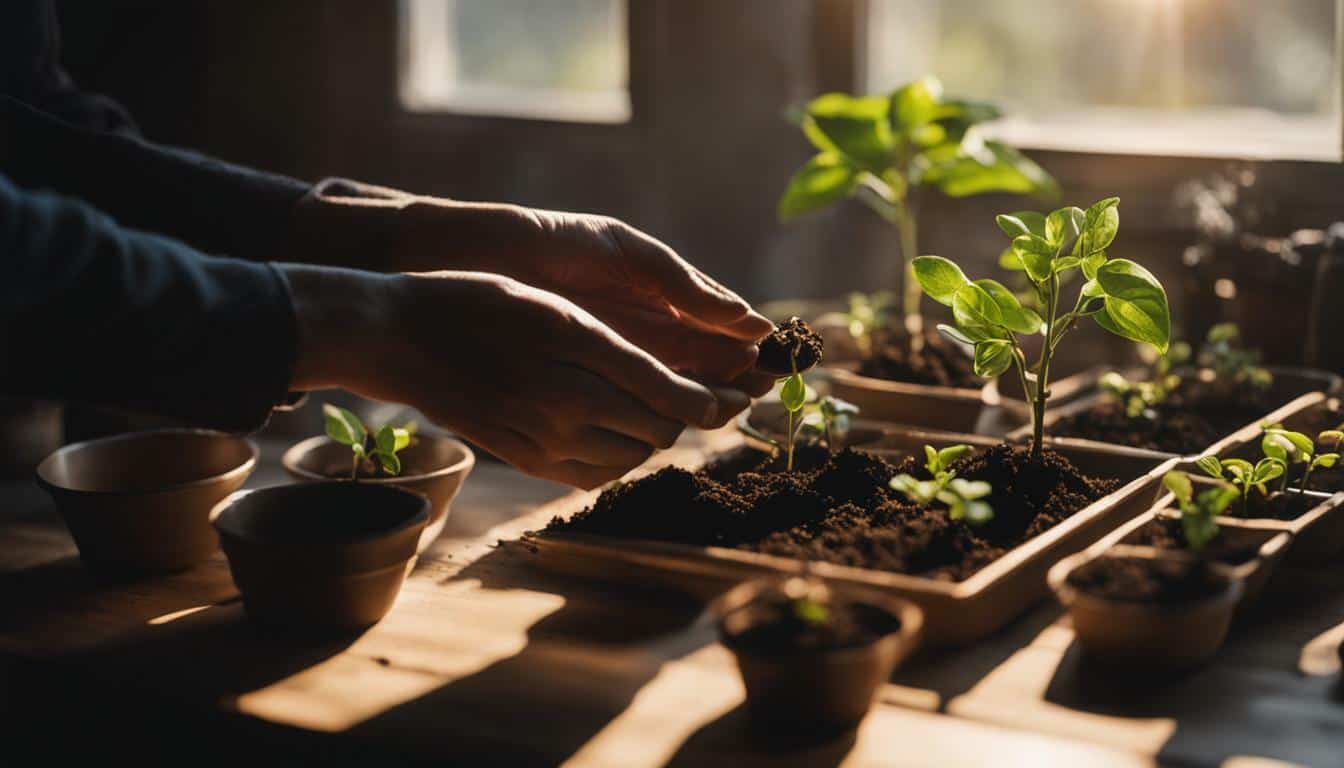
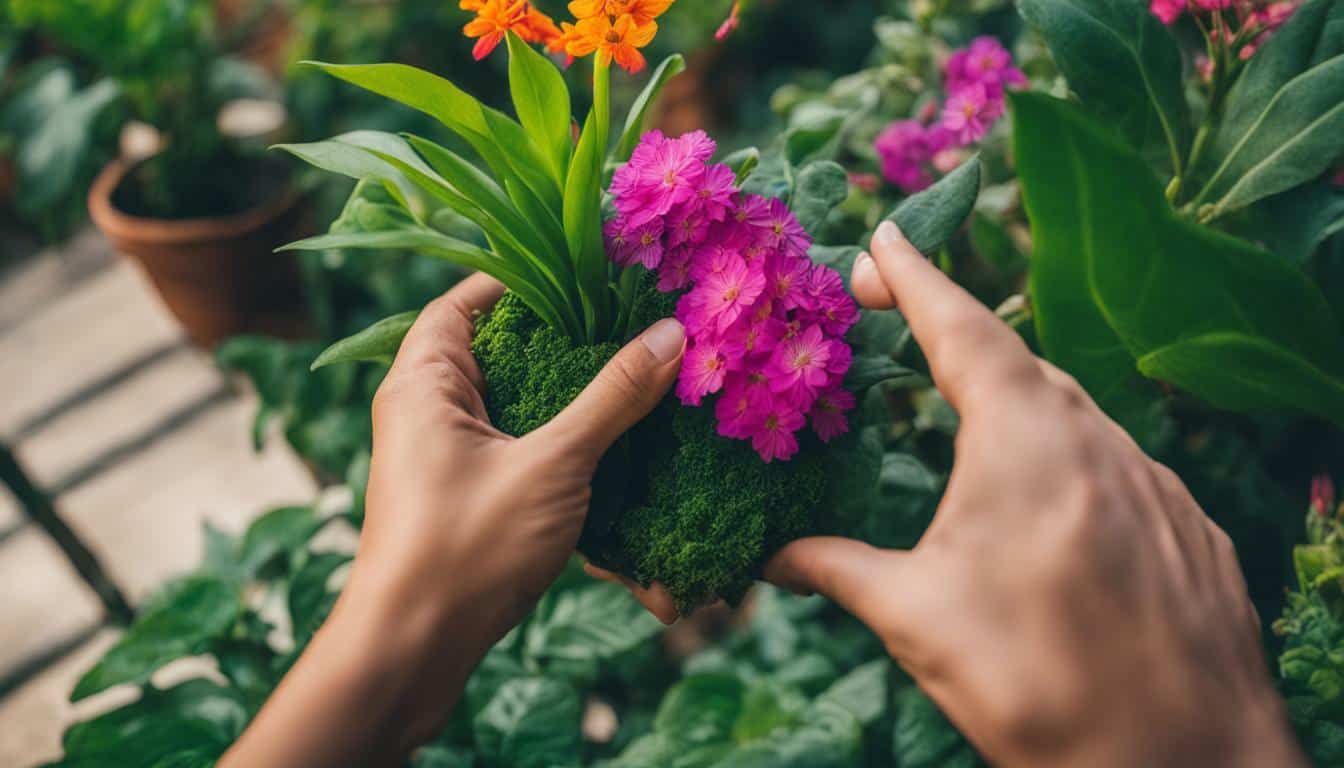
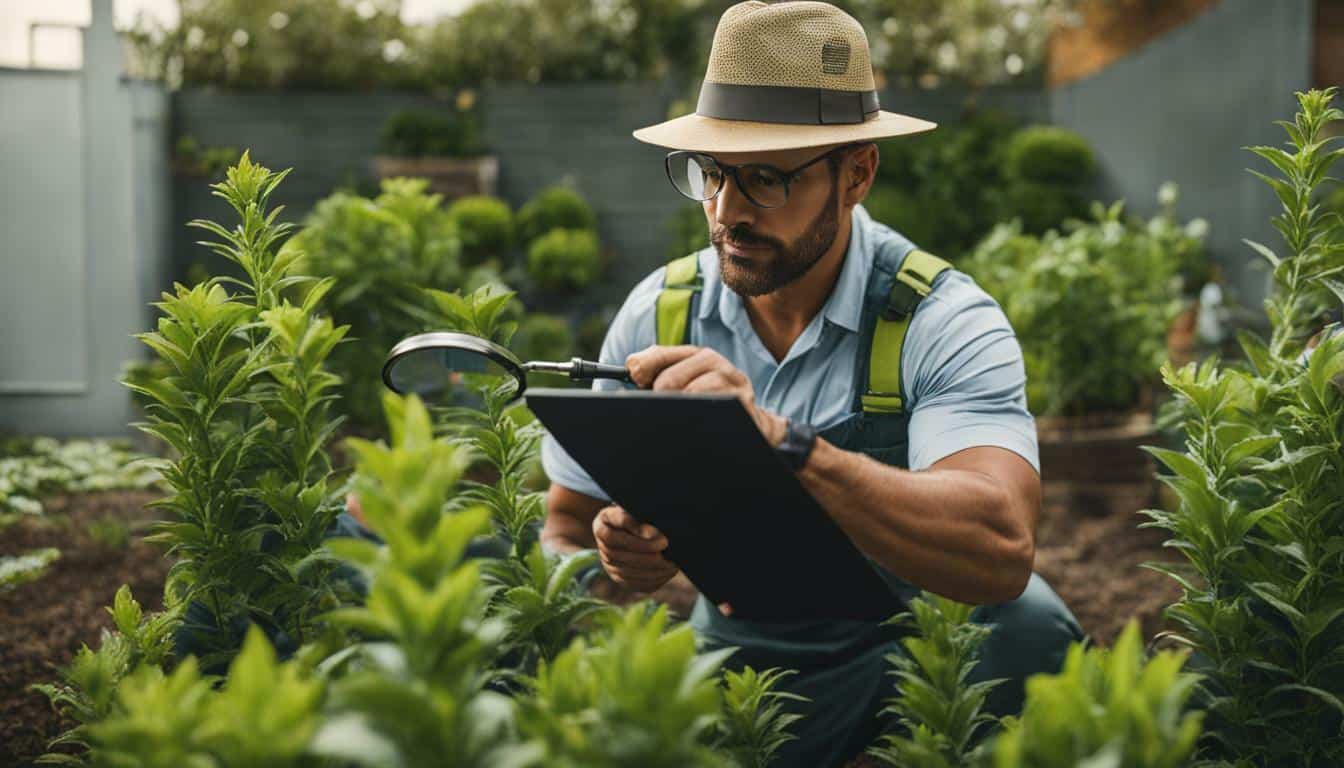

Leave a Reply